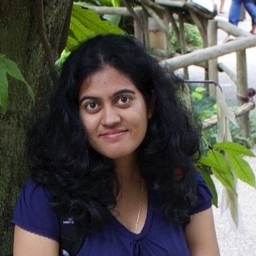
Spoorthy Raman
Science and Environment journalist | Staff Writer @ Mongabay | Barely on Twitter | Find me on Blue Sky @spoorthyraman.bsky.social or on LinkedIn
Articles
-
1 week ago |
news.mongabay.com | Spoorthy Raman
A camera trap has captured video of an elephant for the first time in six years in Senegal’s Niokolo-Koba National Park, reviving hopes that the species may still survive in the park after their near disappearance due to poaching and habitat loss. Ousmane, a hybrid of African forest and savanna elephants, is the first confirmed sighting since 2019, sparking discussions about reintroducing a small herd to reestablish a breeding population.
-
1 week ago |
news.mongabay.com | Spoorthy Raman
A recent report from the Wildlife Justice Commission analyzed trends in ivory and pangolin scales trafficking from Africa over the past decade using seizure data and found that the COVID-19 pandemic significantly disrupted the illegal trade, with fewer significant seizures reported post-pandemic. The report attributes this dip to pandemic-induced lockdowns, increased law enforcement and intelligence gathering, successful prosecutions, and declines in the prices of ivory and pangolin scales.
-
2 weeks ago |
news.mongabay.com | Spoorthy Raman
A recent study analyzed wildlife product listings from 148 online marketplaces over a three-month period and identified more than 500 products from 83 threatened wildlife species, some of which were also listed on CITES Appendix I. Shark trophies — mainly jaws — dominated the listings, accounting for nearly two-thirds of the advertised products, and 73% of those came from endangered and critically endangered shark species.
-
1 month ago |
news.mongabay.com | Spoorthy Raman
A new analysis of more than 70,000 wild animal species reveals that climate change is now the third-greatest threat to the planet’s wildlife, following overexploitation and habitat degradation. The study found that nearly 5% of the assessed species are threatened by climate change, with ocean invertebrates being particularly vulnerable to climate change-related threats, such as extreme temperatures, floods, droughts, storms and ocean acidification.
-
1 month ago |
news.mongabay.com | Spoorthy Raman
A noisier world makes it challenging for birds, which primarily rely on sound to communicate, and many are forced to change their behavior to cope with their clamorous environment. A recent study looked at how traffic noise impacts communication in male Galápagos yellow warblers (Setophaga petechia aureola), a common resident bird on the islands, and found that traffic noise increases aggression in birds living closer to roads.
Try JournoFinder For Free
Search and contact over 1M+ journalist profiles, browse 100M+ articles, and unlock powerful PR tools.
Start Your 7-Day Free Trial →Coverage map
X (formerly Twitter)
- Followers
- 2K
- Tweets
- 4K
- DMs Open
- Yes

RT @SEALAwards: Experts say more research and investments must be directed towards wild rice, and such initiatives need the support of all…

RT @SEALAwards: Researchers argue that natural climate solutions that adhere to these principles are durable and effective in tackling clim…

RT @SEALAwards: A new study estimates how much microplastic is sprinkled into your food and the air. // via @RamanSpoorthy - 2024 SEAL EJA…


